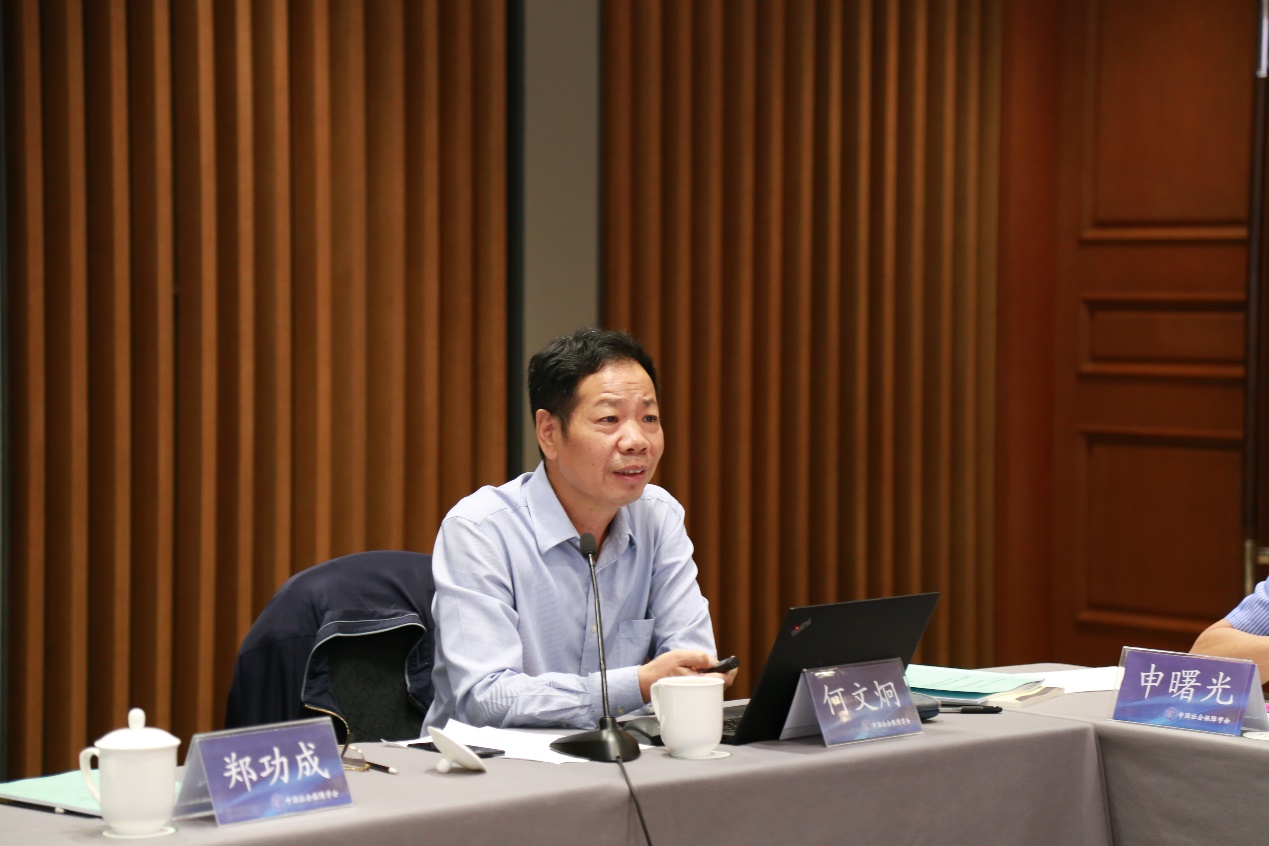On September 26, 2020, Beijing, the China Social Welfare Committee held an academic forum on The role of social welfare system in building a comprehensively well-off society: goals and priorities of the 14th five-year Plan. Hua Jianmin, Honorary President of the Chinese Social Welfare Committee (also Vice Chairman of the 11th National People's Congress Permanent Committee, former National Government Councilor and General Secretary of the State Council) presented the meeting and delivered the opening speech. Professor Zheng Gongcheng (also President of the Chinese Social Welfare Committee), Professor He Wenjiong, and Professor Lin Yi presided over the meeting. 40 scholars from various research and education institutions attended the forum where 30 experts gave face-to-face as well as written presentations on the key issues regarding the development of China`s welfare system in the 14th Five-Year Plan period.

Professor He Wenjiong spoke on Building a fairer pension system of greater sustainability and efficiency . He pointed out that the pension institutions stand at the center of a nation’s social welfare system, concerning the benefits of the entire citizenships. Therefore, the pension system should justifiably command the largest share of budgets and public attention. Indeed, ,China has made significant progress in the reformation of its pension system which substantially contributed to the construction of the “comprehensively well-off society” since the 13th Five-Year Plan. However, many problems persist. First, inter-group pension inequality increased. Second, it is more difficult to keep the balance of payment of The Basic Old-Age Insurance Fund. Third, the enrollment rate of The Basic Old-Age Insurance remains to be improved. Fourth, the development of supplementary pension regulations is slow. Meanwhile, there remain many uncertainties in the macroeconomic situation during the 14th five-year Plan period. In particular, the aging problem of the Chinese population grew serious, the digital age gave rise to the phenomenon of informal employment, and the demands for a fair basic pension system has also improved. To meet these challenges, a fairer pension system of greater sustainability and efficiency should be built to guarantee larger coverage of the Basic Pension. It is also necessary to reduce the pension inequality between social groups and to establish multi-channels of finance for the Basic Old-Age Insurance Fund.



